Relapse is a scary word for anyone who has battled addiction. After putting in the hard work and commitment to overcome substance abuse, the last thing anyone wants is to fall back into destructive habits. But unfortunately, relapse is a common part of a person’s recovery journey. It is not a sign of failure or weakness but rather a setback that can be prevented with the right tools and support. Learning how to prevent relapse is an essential part of maintaining long-term sobriety.
Relapse prevention therapy from Athens Recovery can support those in recovery by helping clients identify risk factors and develop strategies to cope with triggers. If you or a loved one is struggling with addiction, call 844.959.4998 to learn more about our personalized treatment plans.
Understanding Relapse
Relapse refers to a return to drug or alcohol use after a period of abstinence. It can happen at any stage of recovery, from the early days of sobriety to years down the road. While it may feel like a sudden lapse in judgment, relapse is often a gradual process that involves many warning signs and triggers.
One of the main reasons for relapse is the powerful hold that substance abuse can have on a person’s brain. Drugs and alcohol alter the brain’s reward system, making it difficult to resist cravings and triggers. This is why relapse prevention techniques are crucial in helping individuals maintain their sobriety.
How to Prevent Relapse
Preventing relapse involves developing a robust strategy that keeps you grounded, focused, and prepared for possible triggers. Here are six practical ways to prevent relapse:
- Develop healthy coping mechanisms – Learn to deal with stress, anxiety, and other triggers in a healthy manner. This could involve activities such as yoga, meditation, exercise, or other hobbies that can provide a positive distraction.
- Stay connected – Maintain close contact with your support network, which could include friends, family, counselors, or other individuals in recovery. They can provide moral support and advice when you’re feeling vulnerable.
- Attend therapy regularly – Whether it’s individual, group, or family therapy, regular sessions can provide you with the tools and understanding necessary to maintain your sobriety.
- Practice mindfulness –Being aware of your emotions, thoughts, and triggers can help you better deal with situations that might lead to relapse.
- Follow a healthy lifestyle – Regular exercise, a balanced diet, and sufficient sleep can keep your body and mind strong, making it easier to resist cravings.
- Avoid temptations and triggers – Recognize your personal triggers and create a strategy to avoid or deal with them effectively. This might involve changing your social circle, avoiding certain places, or finding new ways to spend your time.
Remember, relapse is not a sign of failure. It’s a common part of the recovery process. With the right tools and support, you can navigate your journey to recovery and maintain long-term sobriety.
How Relapse Prevention Therapy Can Help
Relapse prevention therapy is a crucial component of addiction treatment. It involves identifying warning signs, developing coping mechanisms, and building a support system to help you maintain your sobriety. You’ll work with a therapist to create an individualized relapse prevention plan that addresses your specific triggers and needs.
Call Athens Recovery Today to Learn How to Prevent Relapse
At Athens Recovery, we understand that relapse prevention is an ongoing process. That’s why we offer personalized treatment plans that address each individual’s unique needs and triggers. Our compassionate team of therapists and counselors is committed to helping you achieve long-term sobriety. Contact us today by calling 844.959.4998 or reach out online to learn more about our relapse prevention therapy services and take the first step towards a healthier life.

